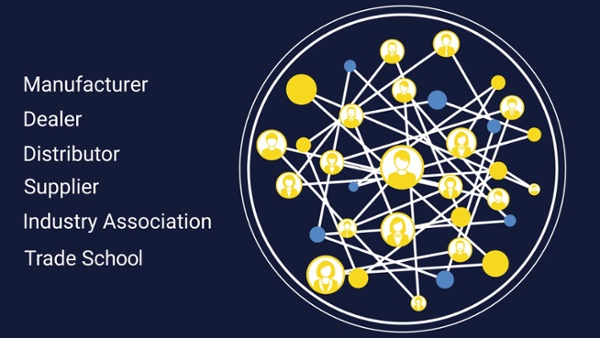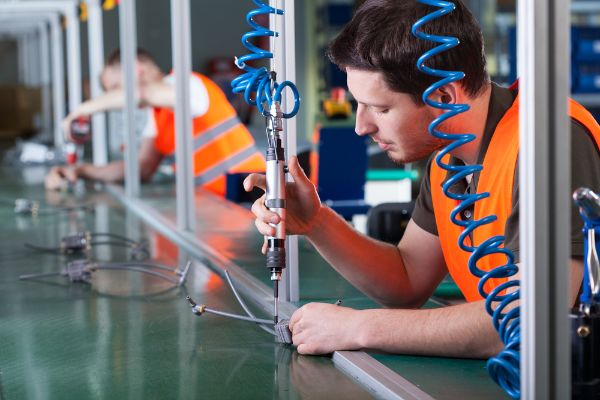According to the analysis group IDC, digital transformation is happening in the industrial and B2B business spaces. Per their findings, 60% of the world’s top manufacturers will depend on digital platforms in 2020, and by 2021, 20%+ of them will be increasingly relying on embedded intelligence and AI.
So, how can a company begin its digital transformation before it’s too late? Here are the most important foundational elements.
Industry leaders are rapidly moving towards a digital workflow – and that’s going to push everyone else in the same direction. When digital ecosystems allow manufacturing to run smarter, faster, and more productively, there’s very little argument against it. Here are three ways to start your business digital transformation:
1. Connect what is unconnected
Industry 4.0 processes are founded on the idea of smart devices, also known as the “Internet of Things.” This is what largely distinguishes it from industrial processes of the past. Previously, a factory required a small army of workers overseeing the various aspects of the production process – the valves, gauges, water pressures, temperatures, etc.
Now, all those things (and many more) can be turned into smart devices capable of reporting their own status directly to central systems. This makes human oversight easier, as well as allowing for the introduction of AI systems which can take over most of the oversight.
The more that elements of the production pipeline are made digital, the easier they are to automate.
2. Integrate software
All those digitally-connected smart components need to be backed up by software systems capable of taking in the data, tracking it, producing reports, and using it as the basis for AI oversight. Currently, many such systems are bespoke, although progress is being made every day towards more “universal” or “plug and play” style connectivity. It’s easy to envision a future, within five years or so, where Smart Pressure Monitors can be added to an Industrial network just as easily as Smart Light Switches can be added to a home network.
Until then, however, there will still be a need for a single software system to collate all the data being gathered, and make it accessible to both humans and automation systems.
3. Encourage data sharing and collaboration
Digital transformation isn’t merely about making it easier for your various computers, machines, and robots to talk to each other – humans are also a big part of the process! All this information gathering can directly affect day-to-day work, by creating opportunities for the creative human workforce to use that data in interesting new ways.
Industry 4.0 actively enables and encourages collaboration within the human space, using the data to find even better ways to do business. It can also be leveraged for secondary benefits outside of core competencies, such as providing more accurate information for marketing campaigns, or suggesting new products/services to compliment those already in place.
LogicBay's FUSE Brings Your Ecosystem Together
Every digital transformation is different, but one thing remains the same: the need to have a communications platform for the sharing of information and the training of workers on these new systems. This is one of the core services provided by FUSE, a revolutionary new open platform for the creation of easily-managed digital ecosystems.

